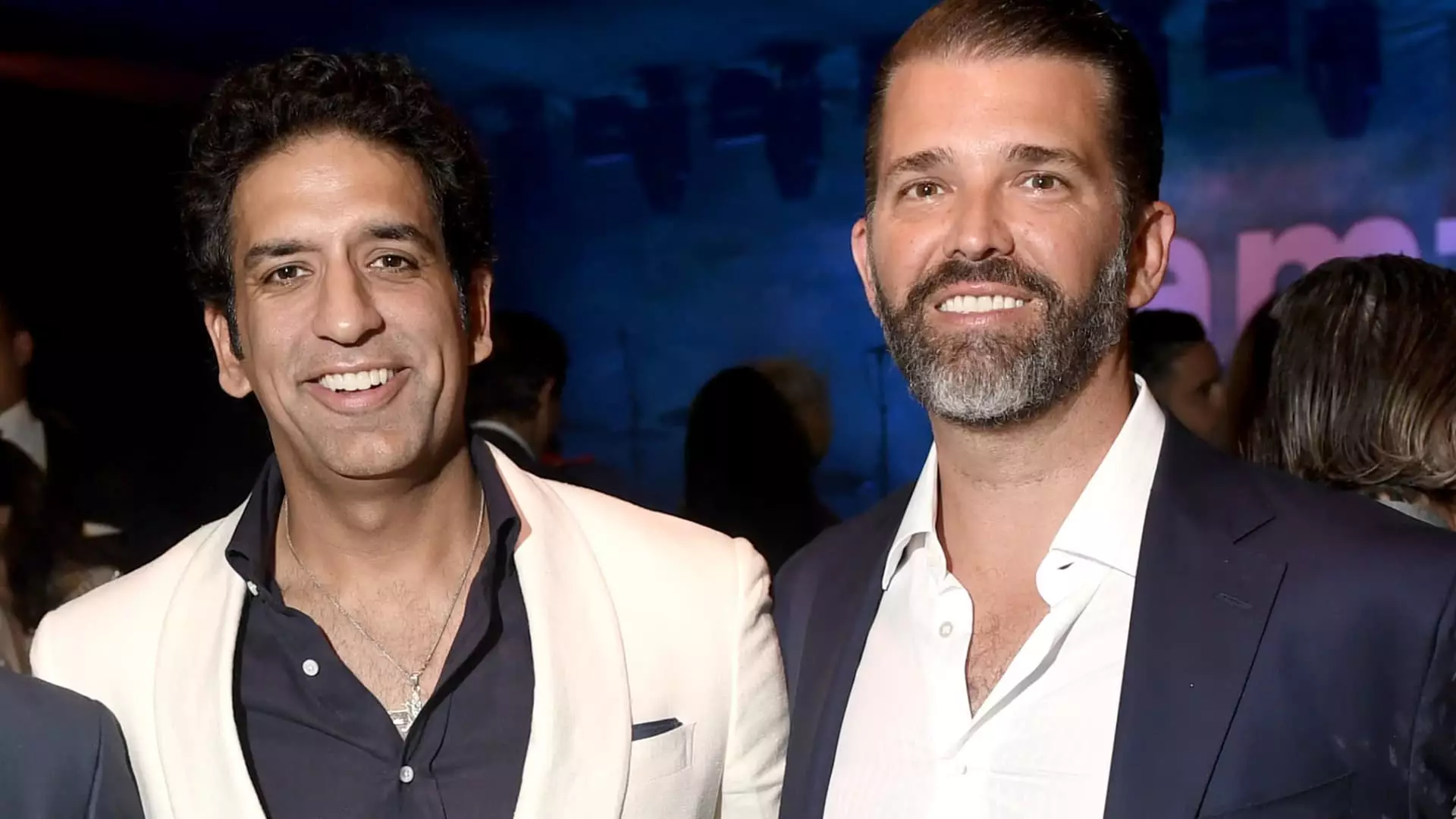In a troubling sign of rising exclusivity in elite social circles, Washington, D.C. has introduced a new private membership club whose initiation fee is a staggering $500,000. Titled Executive Branch, this club co-founded by Donald Trump Jr. has set a precedent that reflects not just a hyper-wealthy enclave but also signals a considerable widening of the gap between political influence and economic privilege. The price tag alone for membership illustrates a blatant disregard for economic disparities within society, suggesting that one’s financial wherewithal is a decisive factor in gaining access to power, ideas, and networks. Is this the trajectory we want our political and social realms to take?
The Architect of Exclusivity
Unsurprisingly, Executive Branch is imbued with the essence of Donald Trump and his associates. Co-founder Omeed Malik, along with Christopher Buskirk and others like tech investor Chamath Palihapitiya and crypto tycoons Tyler and Cameron Winklevoss, embody the blend of money, technology, and political ambition that constitutes modern America’s elite. Their presence hints at a merging of finances with political ambitions, making the club a nexus for individuals who are already thriving in the tech and finance sectors. A mixture of these backgrounds invariably raises concerns over the concentration of power; when tech moguls and political insiders mingle freely, who exactly represents the average citizen’s interests in the decision-making arena?
The Club’s Elite Features
What should one expect when entering the hallowed halls of Executive Branch? Certainly, it won’t be mere networking; it’s planned to be an all-encompassing space with luxurious amenities like upscale restaurants, exclusive bars, meeting rooms, gyms, and spas. While it might appear to be a hub for meaningful exchanges, one must question how these opulent surroundings serve democracy. The club’s resemblance to familiar high-end venues such as the Aman Club or Zero Bond, albeit at a far steeper price, invites skepticism. Will this be a thoughtful gathering place for debate and policymaking or merely an extravagant setting for the already privileged to revel in their power?
A Reflection of D.C.’s Political Culture
The emergence of Executive Branch is indicative of Washington’s evolving socio-political landscape, reminiscent of how the Trump International Hotel transformed during the previous administration. This new private club seems poised to become an epicenter for the political elite, where rigorous vetting ensures that only the most influential members can gain entry—not just anyone with wealth but those whose political connections cement their status. The intentions behind such exclusivity raise eyebrows; what conversations will thrive behind closed doors, and more importantly, whose voices will remain unheard? While camaraderie among political insiders can yield certain strategic advantages, it is essential to reflect on how this seclusion isolates these individuals from their constituencies.
The Danger of Echo Chambers
The emergence of such elitist private spaces can deepen the echo chamber effect, where ideas are exchanged only among like-minded individuals, isolating them further from the society they claim to serve. These selective environments may nurture innovative ideas but also reinforce existing biases, leading to policies that disregard the realities faced by everyday citizens. Furthermore, the assertion that media members and lobbyists are unwelcome raises serious questions. Isn’t transparency crucial in a democratic society? The notion of excluding certain voices contradicts the very fabric of political engagement that needs diverse representation to thrive.
A Shifting Paradigm
Perhaps the most alarming takeaway from the establishment of Executive Branch is its timing amidst a post-pandemic world increasingly characterized by social disparities. With more individuals facing economic hardship, the sight of privilege becoming an intrinsic requirement for political influence is unsettling. As we watch the power dynamics shift, it’s imperative to challenge the normalization of these exclusive clubs and their implications for a functioning democracy. The current political simpletonism—a tidal wave of money meeting power—sets a concerning florid tableau of America’s future, where access and influence are exchanged in exclusive settings that most cannot enter.
As D.C. dances to the rhythms of wealth and political affiliation, one cannot help but wonder: what sort of democracy are we nurturing when access is so firmly a matter of dollars and connections, leaving the authentic voice of the people in the dust?

